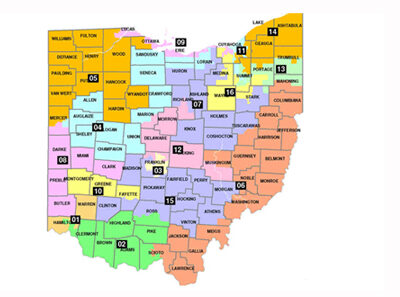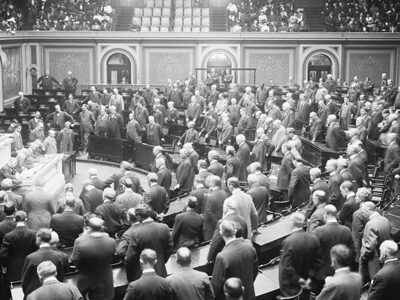News & Commentary
Do Gerrymandering Decisions Before SCOTUS Affect Ohio’s Case?
Last Tuesday, March 26, the Supreme Court heard oral arguments on two partisan gerrymandering cases: one challenge to a Republican gerrymander in North Carolina, and one to a Democratic gerrymander in Maryland. It’s not a stretch to say that the Court’s upcoming decisions could help put an end to a particular brand of partisan abuse that has plagued our government for centuries. Or, they could be an enormous step backwards in the fight to ensure fair representation – or for that matter, might punt on the core issues and resolve the cases on another basis altogether. Having just finished trial in our own partisan gerrymandering lawsuit, A. Philip Randolph Institute of Ohio v. Householder, we’re watching both cases very carefully.
By

On Police Violence, Our Legal System and Community Members Disagree
It was a Saturday in August 2017 when I drove across town to gather in Euclid with family and friends of Luke Stewart, a young father who was killed by Euclid Police after they found him sleeping in his parked car. It was sunny and humid, and people had brought bagels, donuts, coffee. We were canvassing the neighborhood to invite residents to an upcoming city council meeting to demand accountability for the City’s senseless taking of life.

ACLU of Ohio Urges Improvements to Cleveland Police's Search and Seizure Policies
As part of its consent decree process, the Cleveland Division of Police is revising its search and seizure policies, which govern when and how officers can stop, arrest, and detain community members. Although its 2018 revised drafts represent an improvement, there are still changes that must be made for the policies to comply with basic best practices.

Criminal Justice Reform Efforts
The ACLU of Ohio sent a letter to Ohio Senate President Larry Obhof, in response to his public solicitation for thoughts and ideas regarding sentencing and criminal justice reform in Ohio.
By Gary Daniels

Frequently Asked Questions about the U.S. Census
Find out everything you need to know about the 2020 Census:
The ACLU National Office has a resource center with FAQs, check it out!
Where does the federal government find authority to conduct a Census?
The U.S. Constitution authorizes a Census in Article I, Section 2.
"Representatives and direct Taxes shall be apportioned among the several States which may be included within this Union, according to their respective Numbers.""The actual Enumeration shall be made within three Years after the first Meeting of the Congress of the United States, and within every subsequent Term of ten Years, in such Manner as they shall by Law direct." - Article I, Section 2 of the U.S. Constitution.
The Census is conducted under the authority of Title 13 of the U.S. Code, Section 141, which provides that the Secretary of Commerce has authority to take a census.
What is the American Community Survey?
It is a supplement to the Census to collect statistical information from smaller populations during the period between each U.S. Census.

Stay Informed
Sign up to be the first to hear about how to take action.
By completing this form, I agree to receive occasional emails per the terms of the ACLU’s privacy statement.
By completing this form, I agree to receive occasional emails per the terms of the ACLU’s privacy statement.




